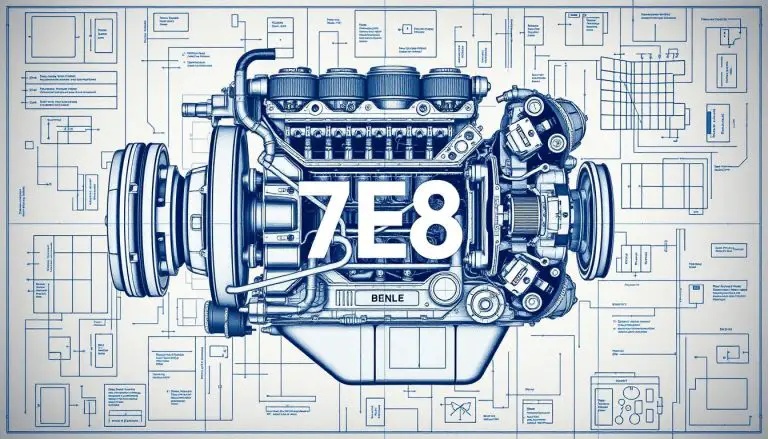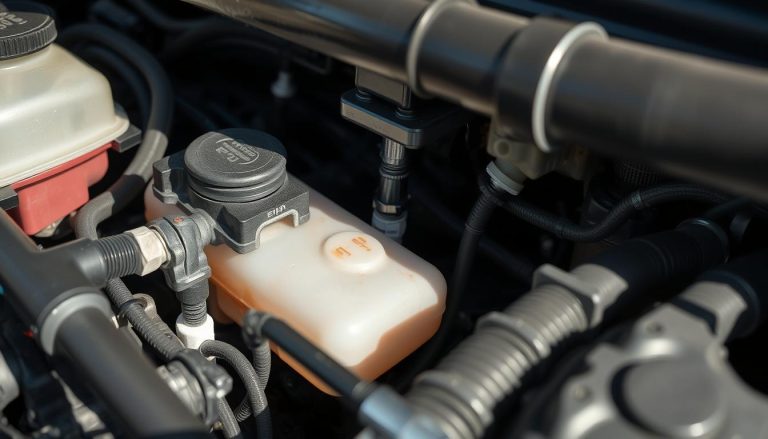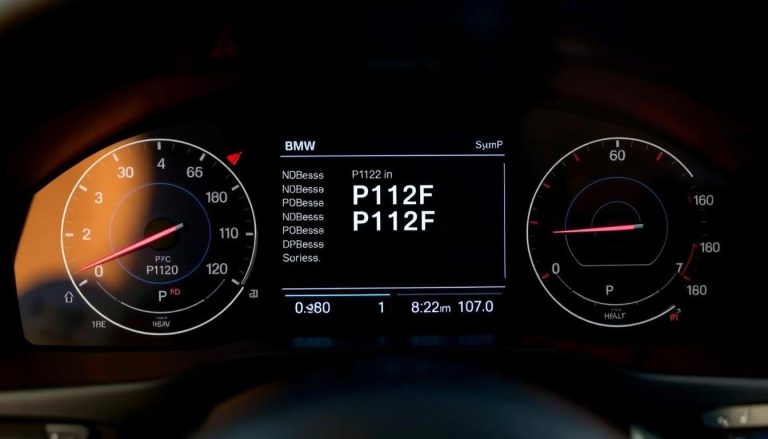This specific code indicates an issue with cylinder 7 misfiring, which can lead to a whole host of performance problems if left unaddressed. Understanding what this code means, its causes, symptoms, and how to fix it can save you time and money in repairs down the line.
Whether you’re a seasoned DIY mechanic or new to car maintenance, let’s dive into everything you need to know about the P0307 code and keep your engine running smoothly!
What does the P0307 code mean?
The P0307 code is a diagnostic trouble code that signals a misfire in cylinder number 7 of your engine. When the engine control module (ECM) detects an inconsistency with the combustion process in this specific cylinder, it triggers this alert.
A misfire occurs when the air-fuel mixture fails to ignite properly or doesn’t ignite at all. This can lead to reduced power and efficiency, impacting overall vehicle performance.
Each cylinder plays a crucial role in ensuring smooth operation. When one falters, it affects not just that part but potentially every aspect of your driving experience.
Understanding this code is essential for timely intervention and avoiding further damage to your vehicle’s engine components. Addressing issues related to the P0307 code promptly will help maintain optimal functionality and keep you on the road safely.
What are the common symptoms of a P0307 code?
When your vehicle throws a P0307 code, several symptoms may surface:
- The engine may be more difficult to start
- The engine may stumble, hesitate, or exhibit other abnormal behavior
- Acceleration could also suffer.
- An illuminated check engine light often accompanies this code, signaling that something needs attention.
- Strange noises can occur too — popping sounds from the exhaust system may indicate incomplete combustion due to a misfiring cylinder.
- Fuel efficiency can decline sharply.
What are the common causes of a P0307 code?
The P0307 code can arise from several underlying issues :
- A worn-out spark plug is one primary suspect. If the electrode becomes damaged or dirty, it can’t ignite the fuel-air mixture effectively.
- A faulty ignition coil specific to that cylinder. A malfunctioning coil fails to deliver the necessary voltage for combustion.
- Fuel delivery problems also play a role. Clogged fuel injectors restrict flow, leading to poor performance and misfires.
- Engine compression issues cannot be overlooked either. Low compression due to valve problems or head gasket failures can severely impact cylinder function.
- Sensor malfunctions such as a failing crankshaft position sensor may trigger false readings and lead to misfiring codes like P0307.
What are the diagnostic steps for a P0307 code?
To diagnose the P0307 code, start with a thorough visual inspection of the engine compartment. Check for loose or damaged wiring and connectors that could affect cylinder 7’s performance.
Next, use an OBD-II scanner to retrieve any additional trouble codes. This can provide context and reveal related issues that might be contributing to the misfire.
Afterward, conduct a compression test on cylinder 7. Low compression may indicate internal problems like worn piston rings or valve issues.
Follow this by checking the ignition system components specific to cylinder 7. Inspect the spark plug for wear or buildup, and evaluate the coil pack’s functionality.
Consider testing fuel delivery to ensure that cylinder 7 is receiving adequate fuel supply. If all else fails, advanced diagnostics such as scanning live data during an engine run can help pinpoint irregularities in performance metrics related to misfires.
How serious Is the P0307 Code? Can I continue driving with the P0307 code?
The P0307 code indicates a misfire in cylinder 7. This issue can be more than just an annoying check engine light; it could lead to further engine damage if left unaddressed.
Driving with this code is risky. A misfire can cause poor fuel efficiency and increased emissions, which might not only hurt your wallet but also the environment. Additionally, persistent driving may worsen existing issues, leading to costly repairs down the line.
If you notice rough idling or stalling alongside the P0307 code, it’s best to avoid long drives until diagnosed. While some drivers may attempt short trips cautiously, ignoring this warning can invite significant problems later on.
Always prioritize safety and vehicle health when faced with diagnostic trouble codes like P0307. Regular maintenance and timely action can save both time and money in the long run.
What are the repair solutions for a P0307 – Cylinder 7 Misfire Detected ?
Repairing a P0307 code typically starts with addressing the root cause of the cylinder misfire. This can involve several approaches, depending on the diagnosis.
If it’s due to faulty spark plugs or ignition coils, simply replacing these components can often resolve the issue. Ensuring that each cylinder has a good quality spark is vital for smooth engine performance.
In cases where fuel delivery issues are found, checking injectors is essential. Clogged or malfunctioning fuel injectors may need cleaning or replacement to restore proper function.
Vacuum leaks and compression issues might require more extensive work. Inspect hoses for cracks and ensure all connections are secure. If compression tests indicate problems within the engine itself, repairs could be more labor-intensive, involving gasket replacements or even valve adjustments.
Always remember to reset your vehicle’s computer after any repair to clear trouble codes before driving again.
How long and How much does it cost to diagnose and repair a P0307 code?
The cost and time to diagnose and repair a P0307 code can vary significantly. Initial diagnostics typically range from $100 to $200, depending on the mechanic’s rates and the complexity of the vehicle.
Once diagnosed, repairs can be more variable. Simple fixes like replacing spark plugs or ignition coils may cost between $150 and $400. However, if it involves deeper engine issues or fuel system problems, costs could escalate to over $1,000.
Repair times usually span a few hours for straightforward issues but may extend beyond a day for major work.
Always seek multiple quotes before proceeding with any repairs. This ensures you receive fair pricing while also understanding the urgency of fixing misfires promptly.
How can I avoid a P0307 code?
Maintaining your vehicle’s engine is key to avoiding the P0307 code. Regular tune-ups can make a significant difference in performance and longevity.
Ensure you replace spark plugs and ignition coils as needed. Worn components are often culprits behind misfires.
Fuel quality matters too. Always use high-quality fuel that meets your car’s specifications to keep the combustion process smooth.
Don’t ignore routine maintenance like oil changes and air filter replacements. Clean filters ensure proper airflow, which aids engine efficiency.
Pay attention to warning lights on your dashboard. They’re early indicators of potential problems, allowing for timely interventions before they escalate into serious issues like a cylinder misfire.
What happens if you ignore a P0307 code?
Ignoring a P0307 code can lead to significant engine issues over time. A misfire in cylinder 7 may seem minor at first, but it can quickly escalate into more severe problems.
When the engine misfires, fuel is not burned efficiently. This inefficiency wastes fuel and increases emissions, which could cause your vehicle to fail an emissions test.
Additionally, prolonged neglect of this issue might damage components like spark plugs or catalytic converters. These parts are essential for optimal performance and can be costly to replace.
Driving with a persistent P0307 code also means risking further strain on your engine’s overall health. Reduced power output may become apparent as acceleration suffers and rough idling occurs.
In the long run, ignoring this warning could result in increased repair costs and reduced vehicle reliability. Regular maintenance checks are crucial for avoiding these challenges down the road.
Is the P0307 code specific to certain car makes or models?
The P0307 code is not limited to specific car makes or models. It can appear in a wide variety of vehicles, including sedans, SUVs, and trucks. This universal nature means that many drivers across different brands may encounter this issue.
However, some manufacturers might have unique characteristics related to engine design or ignition systems that could influence how frequently the P0307 code arises. For instance, certain engines may be more prone to misfires due to their configuration or components used.
It’s essential for vehicle owners to understand that while the symptoms are similar across various makes and models, diagnostic procedures might differ slightly based on each manufacturer’s specifications. Therefore, consulting a professional familiar with your vehicle brand can provide tailored insights into resolving the P0307 code effectively.
What other codes may be related to P0307?
When dealing with the P0307 code, it’s essential to consider that other codes may also appear alongside it. Commonly related trouble codes include P0300, which indicates a random/multiple cylinder misfire detected. This can suggest a broader issue with your engine’s performance.
Additionally, P0306 pertains specifically to a misfire in cylinder 6 and could indicate that multiple cylinders are affected. Other relevant codes might be P0171 or P0174, which point to fuel system lean conditions and could contribute to misfires if the engine isn’t getting enough fuel.
It’s advisable to run diagnostics on any linked trouble codes present during scanning. Addressing these issues promptly not only helps prevent further damage but also improves overall vehicle performance. Understanding all potential related codes will give you a clearer picture of what might be going wrong under the hood and guide you toward effective repairs for your vehicle’s health.


